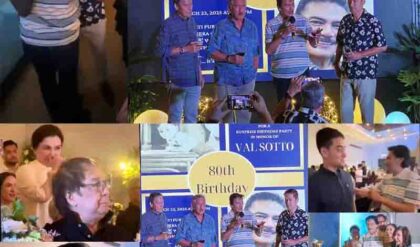Please don’t hurt Karylle, don’t hurt our fellow human beings because all actresses are like that, there’s nothing wrong with them, they are like that
In an era where public figures are frequently scrutinized and often harshly judged, it’s imperative to remind ourselves of a fundamental truth: beneath the glamour and celebrity, they are human beings deserving of respect and compassion. This is especially important when addressing the treatment of actresses such as Karylle, who, like many in the entertainment industry, face undue criticism and unjust treatment. The core of this discussion centers on the notion that no individual, actress or otherwise, deserves to be hurt or demeaned.
Karylle, like her peers, embodies more than just the roles she portrays on screen. She is a person with her own emotions, challenges, and aspirations. It is all too common for public figures to be reduced to mere symbols or stereotypes, losing their individuality in the process. This reductionist view not only undermines their humanity but also fosters a culture of intolerance and cruelty.
Actresses are often portrayed as glamorous and untouchable, yet they are subject to the same struggles and vulnerabilities as anyone else. The pressure to maintain a certain image, the scrutiny of personal choices, and the expectations placed upon them can be overwhelming. In this light, it becomes clear that hurtful comments and unfair judgments are not only misplaced but damaging.
One troubling trend is the blanket assumption that all actresses are alike or that their public personas fully represent who they are. This generalization is harmful and incorrect. Just as with any profession, there is no singular way to be an actress; they come with diverse backgrounds, beliefs, and personalities. To suggest that all actresses are the same or that they should conform to a particular stereotype is to disregard their individuality and to deny them the respect they deserve.
Furthermore, when we see public figures through a singular lens, it reinforces a cycle of negativity. It creates an environment where individuals feel entitled to criticize or demean someone simply because they are a public figure. This mindset not only harms the individual targeted but also perpetuates a broader culture of disrespect.
It is crucial to approach discussions about public figures with empathy. When we see someone like Karylle, we should remember that she, like all individuals, deserves kindness and understanding. Her contributions to the arts, her personal struggles, and her triumphs are all part of her complex human experience. Instead of tearing her down or making unfair judgments, we should aim to uplift and support her.
In a broader sense, embracing empathy toward all individuals, regardless of their profession, fosters a healthier and more respectful society. When we choose compassion over criticism, we not only support those in the public eye but also set a positive example for how we interact with everyone around us.
In conclusion, the message is clear: Please don’t hurt Karylle, and by extension, don’t hurt any fellow human beings. Actresses, like all individuals, deserve to be treated with dignity and respect. By challenging stereotypes, rejecting unfair generalizations, and embracing empathy, we can contribute to a more supportive and understanding world. Karylle, and those like her, are not defined solely by their public personas but are multifaceted individuals deserving of kindness. Let us remember this truth and act accordingly in our interactions and judgments.





